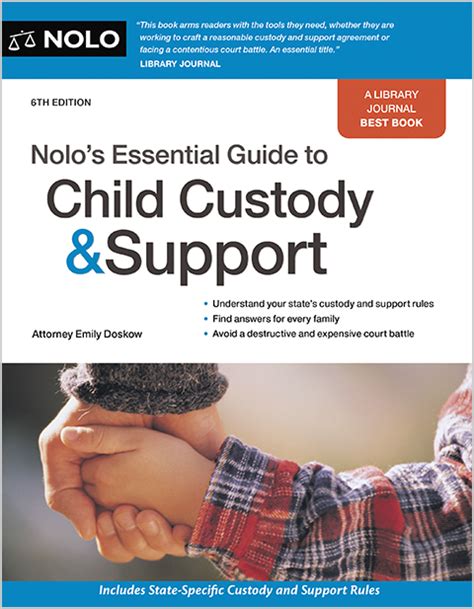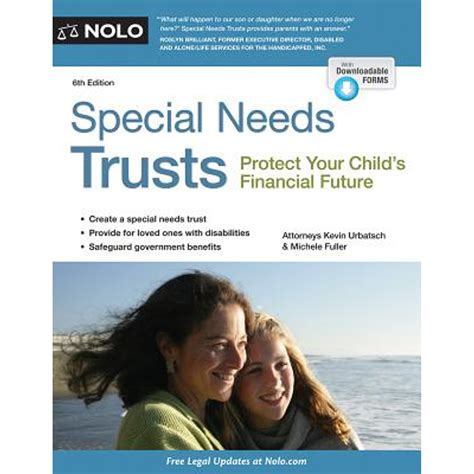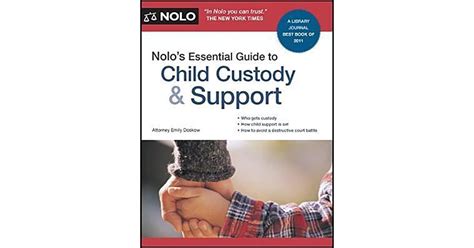Navigating legal issues within relationships can be complex and overwhelming. Whether you’re dealing with divorce, custody matters, cohabitation agreements, or other relationship-related legal concerns, finding reliable and free legal advice is crucial. This guide aims to address common legal questions with insights from expert lawyers, offering you valuable advice on understanding your rights and exploring effective solutions. From navigating property division laws to dealing with domestic violence and understanding prenuptial agreements, we’ve compiled a comprehensive overview to help you make informed decisions. Discover the essential resources and practical tips you need for resolving relationship-related legal issues and find the support you deserve through this interactive platform.
bzcat.xyz will guide you through an in-depth exploration of this topic.
1. Common Legal Issues in Relationships
Relationships can bring about a range of legal issues that often require careful consideration. Common problems include disputes over property division during divorce, issues related to child custody and support, and the intricacies of cohabitation agreements. Additionally, understanding your rights in the context of domestic violence is crucial, as it involves both legal protection and personal safety. Prenuptial and postnuptial agreements are also significant, helping to clarify financial and legal expectations before or during marriage. For same-sex couples, there are unique legal considerations that may affect their relationships and family planning. Addressing these issues proactively can prevent complications and ensure that your rights and interests are protected. Seeking free legal advice from experts can provide clarity and guidance

2. How to Find Free Legal Advice
Finding free legal advice can be essential for those dealing with relationship-related legal issues but who may not have the resources to afford traditional legal services. There are several avenues to explore for obtaining free or low-cost legal assistance.
Start by checking local legal aid organizations, which often provide free consultations and representation for those who meet certain income qualifications. These organizations specialize in various areas, including family law, and can offer guidance on issues like divorce, custody, and cohabitation agreements.
Another valuable resource is community-based legal clinics, which are frequently hosted by law schools or non-profit organizations. These clinics offer free legal advice and are staffed by law students under the supervision of experienced attorneys.
Online legal forums and Q&A platforms can also be useful. Many of these platforms allow you to ask legal questions and receive answers from qualified attorneys without any cost. Additionally, some bar associations provide free legal hotlines or pro bono services that can address specific legal concerns.
Lastly, consider consulting with local attorneys who may offer a free initial consultation. This can be an opportunity to discuss your legal issue and determine whether you need further assistance or representation. By exploring these resources, you can obtain the legal support you need to address your relationship-related legal matters effectively.

3. Understanding Your Rights in a Divorce
Understanding your rights in a divorce is crucial for ensuring a fair outcome and protecting your interests. During a divorce, you have rights related to property division, spousal support, and child custody, which can vary depending on your jurisdiction.
Firstly, it’s important to know that marital property is typically divided equitably, though not necessarily equally. This means that assets and debts accumulated during the marriage will be distributed in a manner that is fair, considering various factors such as the length of the marriage and each spouse’s financial contributions.
Spousal support, or alimony, may be awarded based on factors like the recipient’s needs and the payer’s ability to provide support. This financial support helps the lower-earning spouse maintain a reasonable standard of living post-divorce.
Child custody and support decisions are made with the child’s best interests in mind. Understanding your rights regarding custody arrangements, visitation, and financial support is vital for ensuring that your child’s needs are met and your parental rights are upheld.
Consulting with a legal expert can help you navigate these aspects and ensure you receive the support and

4. Custody and Child Support Questions
Custody and child support are pivotal aspects of divorce that require careful consideration and understanding. Custody arrangements determine where the child will live and how decisions about their upbringing will be made. There are two main types of custody: physical custody, which involves where the child resides, and legal custody, which pertains to the right to make important decisions about the child’s life, such as education and healthcare.
When determining custody, courts prioritize the child’s best interests, considering factors such as each parent’s ability to provide a stable environment, the child’s relationship with each parent, and any history of abuse or neglect. Joint custody, where both parents share responsibilities, is often encouraged, but sole custody may be awarded if deemed necessary.
Child support is the financial contribution one parent makes to help cover the child’s living expenses. The amount is typically calculated based on a formula that considers each parent’s income, the child’s needs, and the amount of time the child spends with each parent. Understanding your rights and obligations regarding custody and support is crucial, and seeking legal advice can ensure that arrangements are fair and in the best interest of your child.
5. Legal Aspects of Cohabitation Agreements
Cohabitation agreements are legal documents designed to outline the rights and responsibilities of partners living together without being married. These agreements are particularly important for couples who want to establish clear terms regarding property, finances, and other aspects of their relationship.
A cohabitation agreement typically addresses issues such as the division of shared property, financial responsibilities, and how to handle assets and debts acquired during the relationship. It can also cover the distribution of property in the event of a breakup and specify the terms of support, if any.
While cohabitation agreements are not universally recognized in every jurisdiction, they can provide a legal framework that helps protect both partners’ interests and clarify expectations. This is especially valuable in cases where one partner has contributed significantly to the other’s assets or income.
Creating a cohabitation agreement with the assistance of a legal professional can ensure that the document is comprehensive and legally binding. This proactive approach helps prevent misunderstandings and disputes, offering peace of mind and security for both partners.
6. Navigating Property Division Laws
Navigating property division laws is a crucial aspect of divorce proceedings and requires a clear understanding of how assets and debts are allocated. Property division laws vary by jurisdiction but generally follow two main approaches: equitable distribution and community property.
In equitable distribution states, marital property is divided fairly, though not necessarily equally. Courts consider various factors, including each spouse’s financial and non-financial contributions to the marriage, the length of the marriage, and each party’s economic circumstances. This approach aims to achieve a fair outcome based on the specifics of the case.
Community property states, on the other hand, typically divide marital property equally between spouses. Assets and debts acquired during the marriage are considered joint property, and each spouse is entitled to half. However, this does not automatically apply to property acquired before marriage or through inheritance, which may be considered separate property.
Understanding these laws is essential for protecting your financial interests and ensuring a fair division of assets. Consulting with a legal expert can provide clarity on how your property will be divided and help you navigate
7. Domestic Violence and Legal Protections
Domestic violence is a serious issue that can have profound legal implications and personal consequences. Legal protections are designed to ensure the safety and well-being of individuals who experience abuse. These protections can include restraining orders, which legally prohibit the abuser from contacting or approaching the victim. Restraining orders can be temporary or long-term, depending on the severity of the situation and the legal proceedings.
Victims of domestic violence may also be entitled to various forms of legal relief, such as emergency custody orders if children are involved, and financial support to assist with relocation or other immediate needs. Many jurisdictions offer specialized domestic violence courts or programs that provide additional resources and support to victims.
It’s essential for victims to document instances of abuse and seek legal advice to understand their rights and options. Legal professionals can help navigate the process of obtaining protective orders and ensure that all necessary steps are taken to secure safety and justice.
In addition to legal remedies, victims should seek support from local domestic violence shelters and counseling services, which can offer emotional support and practical assistance during this challenging time. Legal protections combined with community resources can provide
8. Prenuptial and Postnuptial Agreements
Prenuptial and postnuptial agreements are legal tools that can provide clarity and protection regarding financial and legal matters within a marriage. A prenuptial agreement, often referred to as a “prenup,” is drafted before marriage and outlines how assets and debts will be divided in the event of a divorce or separation. It can also address spousal support and other financial issues. This agreement is particularly useful for individuals with significant assets, business interests, or children from previous relationships, as it helps to define financial expectations and protect individual interests.
A postnuptial agreement, on the other hand, is created after marriage and serves a similar purpose. It is used to update or clarify financial arrangements as circumstances change, such as after a major financial event or significant life changes. Like prenuptial agreements, postnuptial agreements can cover asset division, spousal support, and other financial matters.
Both types of agreements must be fair and voluntarily entered into by both parties to be enforceable. Consulting with a legal expert can ensure that these agreements are properly drafted and legally binding. By addressing potential issues proactively, prenuptial and postnuptial agreements can provide peace of mind and reduce
9. Same-Sex Relationship Legal Considerations
Same-sex relationships face unique legal considerations that can differ significantly from those of heterosexual relationships, especially in terms of rights and protections. One key area is the recognition of marriage and civil unions. In jurisdictions where same-sex marriage is legal, couples enjoy the same legal rights and responsibilities as heterosexual married couples, including those related to property division, spousal support, and inheritance.
However, in regions where same-sex marriage is not recognized, couples may need to explore alternative legal arrangements, such as domestic partnerships or civil unions, to secure similar rights and benefits. These arrangements can provide some legal protections but may not offer the same comprehensive rights as marriage.
Another important consideration is adoption and parental rights. Same-sex couples may face legal challenges when seeking to adopt children or establish parental rights, depending on local laws and regulations. It is crucial to understand how your jurisdiction addresses these issues and to work with a legal professional to navigate the complexities.
Additionally, same-sex couples should consider creating legal documents, such as wills and powers of attorney, to ensure that their rights and wishes are respected. By addressing these legal considerations, same-sex couples can better protect their rights and interests within their relationships.
10. Resources for Ongoing Legal Support
Accessing ongoing legal support is crucial for effectively managing and resolving relationship-related legal issues. Several resources are available to provide continued assistance and guidance.
Legal aid organizations offer ongoing support for those who qualify based on income or other criteria. These organizations provide free or low-cost legal services, including representation and advice on various issues such as divorce, custody, and cohabitation agreements. Many legal aid offices also offer educational resources and workshops to help individuals understand their rights and navigate the legal system.
Community-based legal clinics are another valuable resource. Often hosted by law schools or non-profit organizations, these clinics provide free legal advice and services, including follow-up consultations. They can be especially helpful for addressing specific legal questions or issues that arise during a case.
Online platforms and legal forums can also offer ongoing support. Many websites provide access to legal professionals who can answer questions and offer guidance. Additionally, local bar associations often have referral services and can connect individuals with attorneys who specialize in relationship-related legal matters.
Finally, seeking regular consultations with a trusted attorney can provide ongoing support and ensure that you remain informed about any changes in the law that may affect your situation. These resources collectively help ensure that yo
Navigating relationship-related legal issues requires understanding your rights and seeking appropriate support. From managing custody and child support to addressing domestic violence and drafting prenuptial agreements, having access to reliable legal advice is crucial. Utilize resources such as legal aid organizations, community clinics, and online platforms to find free and ongoing support. By proactively addressing these concerns and leveraging available resources, you can ensure that your legal matters are handled effectively, protecting your interests and fosteri
bzcat.xyz
